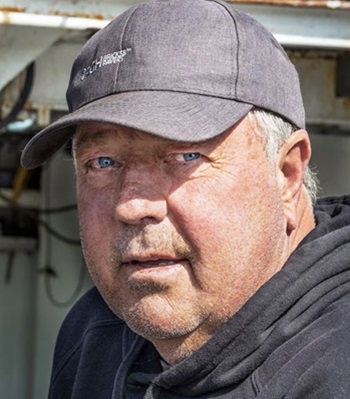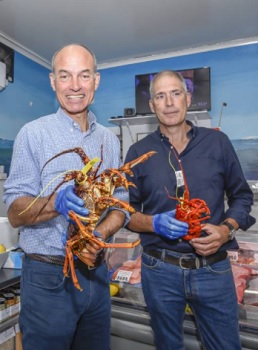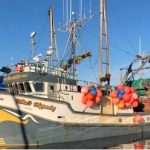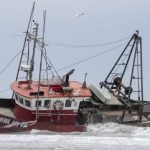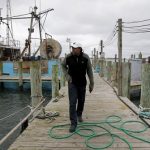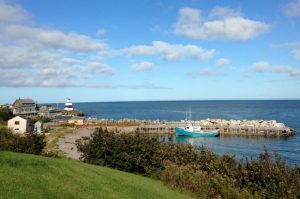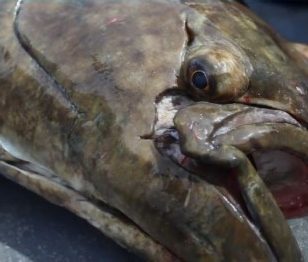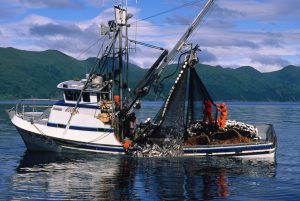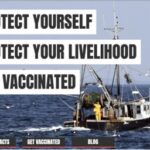Tag Archives: seafood industry
Mississippi Department of Marine Resources lobbying for state to put labels on Gulf shrimp
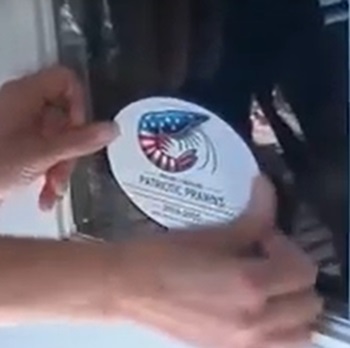 Mississippi’s seafood industry is pushing for legislation to require labeling for Gulf shrimp and seafood, following recent fines for mislabeling. Joe Spragin, executive director of the Mississippi Department of Marine Resources, emphasized that while some businesses do mislabel, many seafood providers strive to offer fresh, locally sourced products. Proposed legislation would mirror the catfish labeling law, ensuring consumers can identify domestic versus imported seafood. Spragin noted the importance of promoting locally sourced seafood, especially to tourists. Initiatives also include enhancing oyster aquaculture and monitoring environmental factors affecting seafood quality, aiming to support both consumers and local businesses. Video, >>CLICK TO WATCH<< 12:02
Mississippi’s seafood industry is pushing for legislation to require labeling for Gulf shrimp and seafood, following recent fines for mislabeling. Joe Spragin, executive director of the Mississippi Department of Marine Resources, emphasized that while some businesses do mislabel, many seafood providers strive to offer fresh, locally sourced products. Proposed legislation would mirror the catfish labeling law, ensuring consumers can identify domestic versus imported seafood. Spragin noted the importance of promoting locally sourced seafood, especially to tourists. Initiatives also include enhancing oyster aquaculture and monitoring environmental factors affecting seafood quality, aiming to support both consumers and local businesses. Video, >>CLICK TO WATCH<< 12:02
Some in seafood industry see Trump as fishermen’s friend, but tariffs could make for pricier fish
 The incoming administration of President-elect Donald Trump is likely to bring big changes for one of the oldest sectors of the U.S. economy, seafood, and some in the industry believe the returning president will be more responsive to its needs. Economic analysts paint a more complicated picture, as they fear Trump’s pending trade hostilities with major trading partners Canada and China could make an already pricy kind of protein more expensive to consumers. Conservationists also fear Trump’s emphasis on government deregulation could jeopardize fish stocks that are already in peril. But many in the commercial fishing and seafood processing industries said they are excited for Trump’s second presidency. They said they expect he’ll allow fishing in protected areas as he did in his first presidency, crack down on offshore wind expansion and cut back regulations they describe as burdensome. And they expect a marked shift from the administration of President Joe Biden, who prioritized ocean conservation and championed wind power from the start. Video, more, >>CLICK TO READ<< 10:26
The incoming administration of President-elect Donald Trump is likely to bring big changes for one of the oldest sectors of the U.S. economy, seafood, and some in the industry believe the returning president will be more responsive to its needs. Economic analysts paint a more complicated picture, as they fear Trump’s pending trade hostilities with major trading partners Canada and China could make an already pricy kind of protein more expensive to consumers. Conservationists also fear Trump’s emphasis on government deregulation could jeopardize fish stocks that are already in peril. But many in the commercial fishing and seafood processing industries said they are excited for Trump’s second presidency. They said they expect he’ll allow fishing in protected areas as he did in his first presidency, crack down on offshore wind expansion and cut back regulations they describe as burdensome. And they expect a marked shift from the administration of President Joe Biden, who prioritized ocean conservation and championed wind power from the start. Video, more, >>CLICK TO READ<< 10:26
Alaska’s “Imploding” Fishing Industry Has Shed 38,000 Jobs
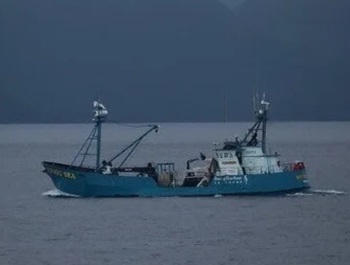 In an economic review requested by fishermen and processors, NOAA found that profitability dropped by half from 2021-23, and wholesale prices dropped by a quarter in 2022-23. This left the Alaskan seafood industry with a total direct loss of $1.8 billion in 2022-3 and the loss of about 38,000 jobs. “For many Alaskans the decline of their seafood industry affects their pocketbooks, presents food security concerns, and impacts their way of life, sense of place, community, and identity,” NOAA noted. “In the face of evolving climate-driven impacts to ecosystems and fisheries in the region, these recent market disruptions undermine the capacity of all segments of the seafood industry and associated fishing communities to be resilient and survive in fisheries.” more, >>CLICK TO READ<< 11:47
In an economic review requested by fishermen and processors, NOAA found that profitability dropped by half from 2021-23, and wholesale prices dropped by a quarter in 2022-23. This left the Alaskan seafood industry with a total direct loss of $1.8 billion in 2022-3 and the loss of about 38,000 jobs. “For many Alaskans the decline of their seafood industry affects their pocketbooks, presents food security concerns, and impacts their way of life, sense of place, community, and identity,” NOAA noted. “In the face of evolving climate-driven impacts to ecosystems and fisheries in the region, these recent market disruptions undermine the capacity of all segments of the seafood industry and associated fishing communities to be resilient and survive in fisheries.” more, >>CLICK TO READ<< 11:47
Catching a glimpse of the Mississippi seafood industry
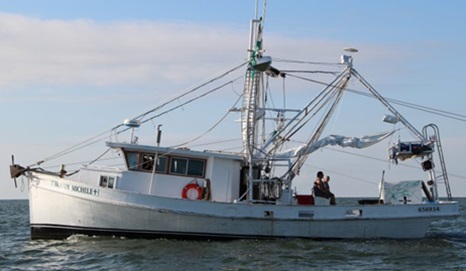 If you were asked to list the seafood available from the nutrient-rich waterways along the Mississippi Gulf Coast, how many could you name? What comprises the shellfish? The finfish? Go! Sadly, I could only name a few. That is why there is a website provided by Mississippi Seafood that gives us the information we need. The seafood identification, scientific name, common name, season, peak season, and similar species are included. There are suggested cooking methods and a description regarding the flavor of each seafood mentioned. There are brown, pink, and white shrimp, oysters, and blue crabs under the shellfish category. Then, for the finfish, there are Mississippi Gulf Black Drum, Flounder, Mullett, and Red Drum. Red, Mangrove, Lane, and Yellowtail are part of the snapper family. Another one is the Mississippi Spotted Sea Trout. more, >>CLICK TO READ<< 09:34
If you were asked to list the seafood available from the nutrient-rich waterways along the Mississippi Gulf Coast, how many could you name? What comprises the shellfish? The finfish? Go! Sadly, I could only name a few. That is why there is a website provided by Mississippi Seafood that gives us the information we need. The seafood identification, scientific name, common name, season, peak season, and similar species are included. There are suggested cooking methods and a description regarding the flavor of each seafood mentioned. There are brown, pink, and white shrimp, oysters, and blue crabs under the shellfish category. Then, for the finfish, there are Mississippi Gulf Black Drum, Flounder, Mullett, and Red Drum. Red, Mangrove, Lane, and Yellowtail are part of the snapper family. Another one is the Mississippi Spotted Sea Trout. more, >>CLICK TO READ<< 09:34
More than $30 million & 300 jobs lost during 2019 spillway opening, MSU study finds
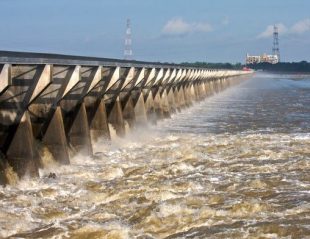 The 2019 opening of the Bonnet Carré Spillway cost the Mississippi Coast hundreds of jobs and millions of dollars, a scenario likely to repeat itself and endanger a seafood industry that has been vital to the economy and culture, a study from Mississippi State University concludes. The seafood industry also has declined because of competition from imports, the study noted. Interviews showed many fishermen, including those who specialize in shrimp and oysters, are selling their boats and leaving an industry that supported their families for generations. Video, more, >>CLICK TO READ<< 15:14
The 2019 opening of the Bonnet Carré Spillway cost the Mississippi Coast hundreds of jobs and millions of dollars, a scenario likely to repeat itself and endanger a seafood industry that has been vital to the economy and culture, a study from Mississippi State University concludes. The seafood industry also has declined because of competition from imports, the study noted. Interviews showed many fishermen, including those who specialize in shrimp and oysters, are selling their boats and leaving an industry that supported their families for generations. Video, more, >>CLICK TO READ<< 15:14
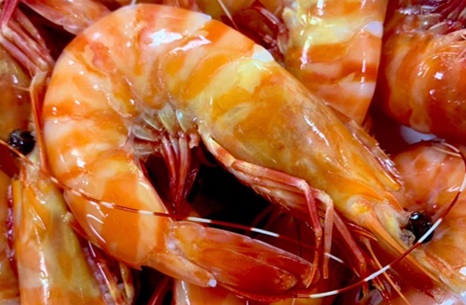
Low export prices prompt seafood industry to push more tiger prawns into Aussie markets
Australians are being urged to eat more wild-caught tiger prawns, as fishers move away from sending their produce overseas. It’s been a slow start to the season in the Gulf of Carpentaria in northern Queensland; catches are down but fishers are also facing challenging international markets amid tough economic conditions. Austral Fisheries is one of the largest commercial fishing companies in Australia. Northern prawn division operations manager Bryan Van Wyck said due to an oversupply on the international market, they could not get the prices they were accustomed to. more, >>CLICK TO READ<< 09:46
Do these Georgia waterways support “significant” commercial activity? A federal agency says no
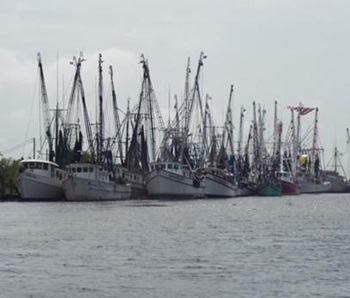 The U.S. Army Corps of Engineers says the agency hasn’t dredged nine Georgia waterways in decades – and there hasn’t been much impact as a result. So they’re considering asking Congress to de-authorize them from federal maintenance. But Georgia seafood harvesters and others say that’s not true. They argue that there’s plenty of commercial activity on Georgia’s smaller coastal waterways to justify keeping them authorized for future dredging. Charlie Phillips of Townsend, in northern McIntosh County, owns two seafood harvesting businesses, Phillips Seafood and Sapelo Sea Farms. “It’s going to need to be dredged sooner or later,” he said, noting that some areas on the Sapelo River already are troublesome for some boats at low tide. more, >>CLICK TO READ<< 08:41
The U.S. Army Corps of Engineers says the agency hasn’t dredged nine Georgia waterways in decades – and there hasn’t been much impact as a result. So they’re considering asking Congress to de-authorize them from federal maintenance. But Georgia seafood harvesters and others say that’s not true. They argue that there’s plenty of commercial activity on Georgia’s smaller coastal waterways to justify keeping them authorized for future dredging. Charlie Phillips of Townsend, in northern McIntosh County, owns two seafood harvesting businesses, Phillips Seafood and Sapelo Sea Farms. “It’s going to need to be dredged sooner or later,” he said, noting that some areas on the Sapelo River already are troublesome for some boats at low tide. more, >>CLICK TO READ<< 08:41
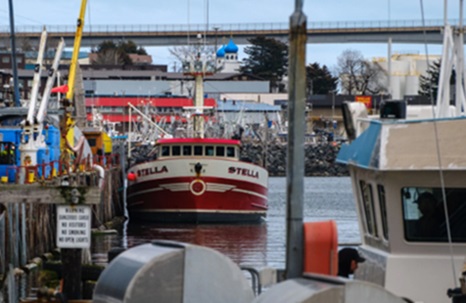
The seafood industry is in trouble. Processors and policy makers blame Russia.
Alaska waters produce the most seafood in the country, and many of the state’s coastal communities depend on commercial fisheries to sustain their economy. But Alaska’s fisheries are facing a massive economic slump right now and policymakers are increasingly blaming flooded global markets. The private sector and federal policymakers are teaming up to try to stop the bleeding. Last year was brutal on the seafood industry. Processing companies and fishermen alike suffered amid cratering prices, and they blamed Russia for flooding markets. Republican U.S. Sen. Dan Sullivan, from Alaska, pointed his finger at the country at a news conference on May 23. “Russians have essentially admitted they’re not just at war in Ukraine, they’re at war with the American fishing industry,” he said. more, >>CLICK TO READ<< 16:03
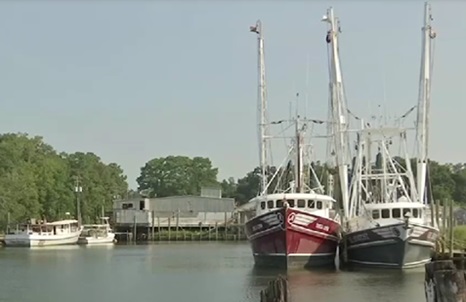
Alabama on verge of requiring sellers to say where their seafood comes from
The seafood industry that put this small city on the map says it is in crisis, buffeted by foreign imports that have driven down the price of shrimp to as little as a dollar per pound. Those prices are comparable to what shrimp fetched in the early 1980s – too low, Steve Sprinkle said, for many operators even to take their boats out. But the Alabama Legislature is trying to at least make it easier for consumers who want to buy local. A bill that got final approval this week would require restaurants to include “country of origin” information on or with the menu. There’s a similar requirement for good trucks and stores. Video, more, >>CLICK TO READ<< 09:48
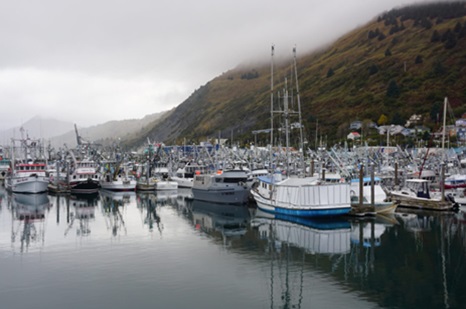
Report portrays mixed picture of Alaska’s huge seafood industry
The report from the McKinley Research Group, titled The Economic Value of Alaska’s Seafood Industry, is the latest in a periodic series commissioned by the Alaska Seafood Marketing Institute. The total economic value of the Alaska seafood industry in 2021 and 2022 was $6 billion, slightly more than the $5.6 billion tallied in 2019, the last full year prior to the COVID-19 pandemic, according to the new report and the previous version published in 2022. Along with that good news, the McKinley Research Group’s report contains a warning about the industry’s economic future. The seafood industry, between harvesters, processors and managers, accounted for 48,000 jobs on average in 2021 and 2022, equivalent to 29,100 full-time positions, the report said. That is a reduction from the 62,200 total jobs in 2019, the equivalent of 37,400 full-time positions. more, >>CLICK TO READ<< 11:21
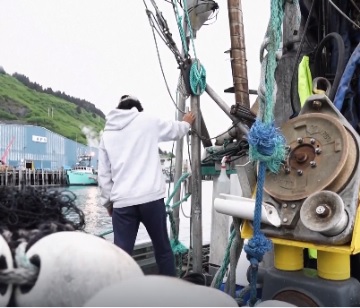
In a surging seafood industry, boat captains struggle to find workers
Federal aid for Louisiana fisheries delivered after nearly four years
 After a long wait, Louisiana’s fisheries finally will receive $58 million in federal aid to offset disaster impacts, U.S. Rep. Garret Graves announced. “There is no excuse for the bureaucracy to take four years for the disaster relief we secured to actually be made available, but these funds will be invaluable,” he said in the announcement. “We have promised the seafood industry we would not stop our fight to bring them relief while working to reform the broken fisheries disaster process. We will continue to work with our fishing community to cut through the red tape and make this program functional.” He also pointed out the state’s seafood industry endured the impacts of Hurricane Ida in 2021 and other disasters, in addition to the rise in inflation, high fuel prices, and supply chain problems, among other issues. >>click to read<< 09:54
After a long wait, Louisiana’s fisheries finally will receive $58 million in federal aid to offset disaster impacts, U.S. Rep. Garret Graves announced. “There is no excuse for the bureaucracy to take four years for the disaster relief we secured to actually be made available, but these funds will be invaluable,” he said in the announcement. “We have promised the seafood industry we would not stop our fight to bring them relief while working to reform the broken fisheries disaster process. We will continue to work with our fishing community to cut through the red tape and make this program functional.” He also pointed out the state’s seafood industry endured the impacts of Hurricane Ida in 2021 and other disasters, in addition to the rise in inflation, high fuel prices, and supply chain problems, among other issues. >>click to read<< 09:54
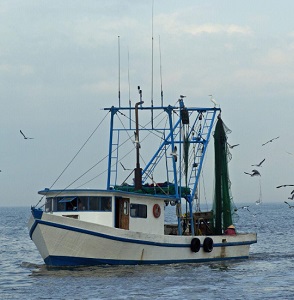
Louisiana: Lawmakers taking action to protect state’s seafood industry
Fishermen in Louisiana are suffering from imports and they’re worried about the future of the seafood industry in the state. It’s why lawmakers are putting tougher restrictions on imports to help struggling shrimpers. Fishermen say they are at risk of losing their livelihoods due to inflation and the abundance of imported seafood. It’s why shrimpers stood on the capitol steps urging lawmakers to do something. Louisiana Shrimp Association President Acy Cooper has been a fisherman in Louisiana for 45 years. He said he hopes he is able to keep it alive so that his grandkids can carry on the legacy. >click to read< 09:12
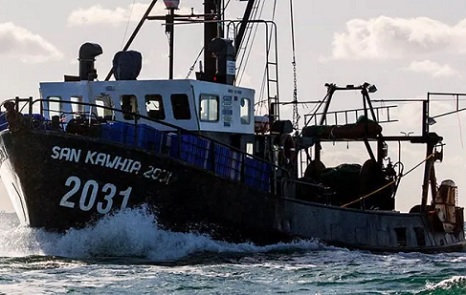
Cawthron boss told he should have expressed himself better
Cawthron Institute chief executive Volker Kuntzsch was expressing his personal opinion when he told an industry symposium that New Zealand had no future without fishing, the institute’s chair says. “I don’t think he’s expressed them in the way that he should have expressed them,” says Meg Matthews. “I think he was challenging the status quo. I think he was hoping to shift mindsets.” It comes amid concerns from academic leaders and environmental groups that Kuntzsch has undermined the independence and scientific credibility of the institute, with his claims about the sustainability of the seafood industry, and his criticism of the carbon emissions of farming and plant-based protein. >click to read< 19:24
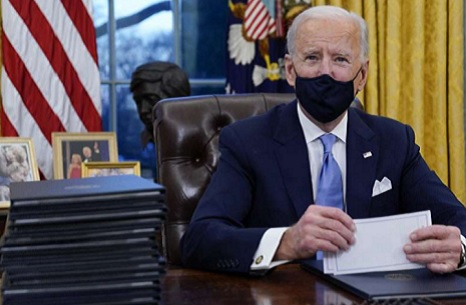
Biden’s lavish lobster dinner doesn’t change his hostility to seafood industry
Bob Vanasse, executive director of Saving Seafood, commended Golden for calling out Biden on the issue and said that his organization has had trouble meeting with the current administration. Vanasse said that it’s not just lobster, but other seafood industries like tuna and swordfish, are having issues meeting with the White House. “I applaud the congressman for calling out the administration’s hypocrisy when it comes to our domestic fisheries and their policies,” “This is not the first time that something like this has happened, but it is good to see, and particularly a Democrat pointing it out because this administration has frankly not been friendly or helpful to our domestic fishing industry,” >click to read< 20:02
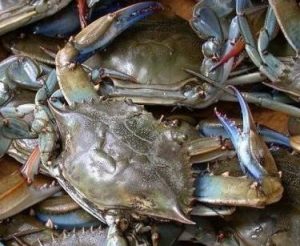
‘The seafood industry is significant to Maryland’s economy and identity’
Maryland’s seafood industry has long been the envy of markets around the country, providing more than $600 million each year to the state economy. Stone Slade, seafood marketing director for Maryland’s Department of Agriculture, said it isn’t hard to locate a “fresh catch” and the industry plays a key role in shaping the state’s identity. “The seafood industry contributes $600 million to the state’s economy, employs thousands of workers, has annual commercial landings averaging over 56 million pounds, and an annual dockside value of $95 million.” >click to read< 11:20
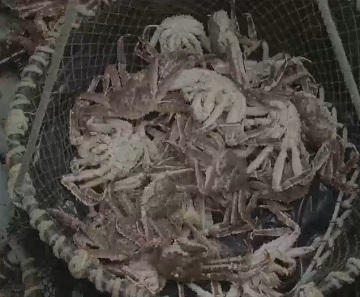
Canceled crab season could devastate Unalaska
As the top fishing port by volume in the nation, fishing runs in the veins of Unalaska. Officials say that nearly everyone in the city relies on the robust seafood industry. “Our only industry is our fishing industry. So everything that goes on in communities are related,” said Frank Kelty, the Fishery consultant for the City of Unalaska. “In 2019, we had the quota of 45 million pounds. Then last year, we were down to 25 million pounds,” Kelty said. This year, that industry came to a drastic halt. “You know 60, 70 boats not buying fuel. Not buying groceries. It adds up pretty quick,” Kelty said. “Those boats aren’t fishing, they are not buying groceries every five days when they come in for a trip, Video, >click to read< 13:42
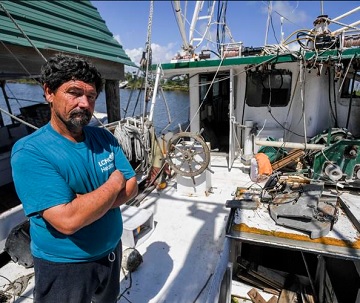
Fishing for Solutions: The race to protect coastal Louisiana’s cultures and way of life
The seafood and fishing industry provides tens of thousands of jobs to Louisiana, many of them via small family businesses in coastal communities. And while dealing with the impacts of climate change, local fishers and shrimpers also are contending with imported products driving down prices, fuel costs, fisheries allocations, regulatory constraints and an aging workforce. Local fishers in recent years have been grappling with skyrocketing insurance rates as well, making it harder to recover once the storm has passed. Photos, >click to read< 09:09
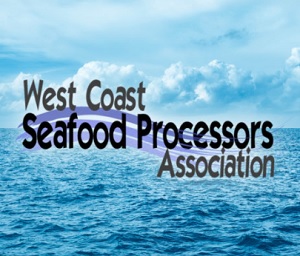
Seafood Industry Professions Raise Concerns About Reintroduction Of Sea Otters
West Coast Seafood processors says that their membership is concerned about a study on the impacts of sea otters on coastal fishing. The West Coast Seafood Processors Association says that they join other ocean stakeholders in a lack of confidence about concerns raised about the otters. “We remain very concerned that the issues we identified in our letter last year will not be adequately addressed in the Fish and Wildlife Service’s cost and feasibility study,” West Coast Seafood Processors Association Executive Director Lori Steele said. >click to read< 18:24
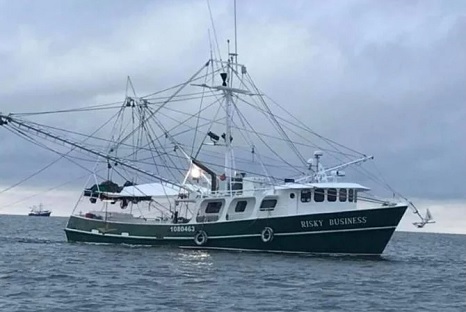
Local trawler has given his life to seafood industry, says it’s vital to protect our heritage
Next year will mark 50 years that David Dardar has been in the seafood industry, dating back to when he got his first boat as a teenager. The number of captains on the water may be fewer now than when Dardar got his start, but he said it’s vital that we do whatever it takes to keep our Cajun heritage alive. Dardar is captain of the F/V Risky Business, the boat he uses to harvest seafood from the Gulf each trawling season. Dardar said the industry is shrinking, but that it’s vital that it stays alive to protect the Cajun heritage that we all know and love. photos, >click to read< 16:38 Louisiana
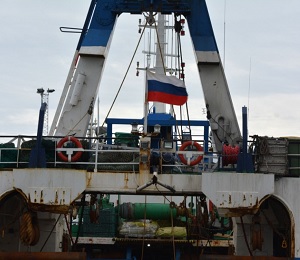
Seafood Biz Braces For Losses Of Jobs, Fish Due To Sanctions
The worldwide seafood industry is steeling itself for price hikes, supply disruptions and potential job losses as new rounds of economic sanctions on Russia make key species such as cod and crab harder to come by. The latest round of U.S. attempts to punish Russia for the invasion of Ukraine includes bans on imports of seafood, alcohol and diamonds. The impact is likely to be felt globally, as well as in places with working waterfronts. One of those is Maine, where more than $50 million in seafood products from Russia passed through Portland in 2021, according to federal statistics. “If you’re getting cod from Russia, it’s going to be a problem,” said Glen Libby, an owner of Port Clyde Fresh Catch, a seafood market in Tenants Harbor, Maine. “That’s quite a mess. We’ll see how it turns out.” >click to read< 13:39

The Oysterman, the Pirate and Louisiana’s disappearing wetlands
Maurer was in a bind. Hurricane Ida had decimated the supply chain. The storm swept through the heart of Louisiana’s $2.4bn seafood industry, which supports one out of 70 jobs in the state, leaving him with no roads, no power, and very little seed. He decided he needed to find “new routes to market, whether by boat or by land. Go pirate on them.” He meant this literally. As he looked for a solution among the lingering chaos of the hurricane, he thought of the notorious pirate Jean Laffite, who once operated out of Grand Isle. Maurer decided he would follow the same route: He bought Les Bons Temps to see if he could bring his catch to town directly, bypassing the wrecked roads and bridges. photos, >click to read< 15:12
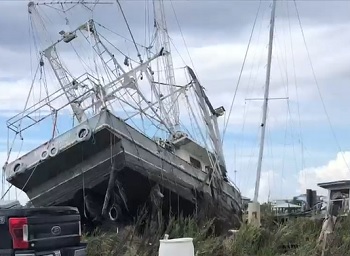
Hurricane Ida: 50% of this year’s shrimp and oyster harvest may be lost
Fishing communities across Southeast Louisiana are down for the count after Ida. In Lafitte alone, some estimate more than 100 boats are knocked out of commission. “The shrimping community is over probably for the next three years you can’t sell shrimp in Grand Isle or Lafitte,” said Ray Champagne of Lafitte. It’s not just the boats, docks have also been wiped out, many still don’t have power, and the state’s one-billion-dollar seafood industry may lose half its production this year. “It’s going to be down at least 50% and that’s my rough guess right now,” said Patrick Banks, with La. Dept of Wildlife and Fisheries. Not only did Ida deal a blow to the shrimp industry but oystermen have taken it on the chin as well. video, >click to read< 08:53
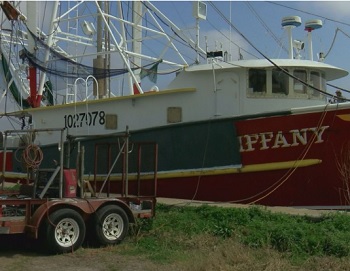
Mississippi Commission on Marine Resources talk Bonnet Carré Spillway, CARES Act funding
Many fishermen got some help from that $1.5 million of CARES Act money that was granted to the state of Mississippi, with most of that going to the seafood industry. $734,222 of that money went to local commercial fishermen, $451,284 went to seafood dealers and processors, and $239,179 of it went to the charter boat fleet.,, At Tuesday’s Commission on Marine Resources meeting, Joe Spraggins, Department of Marine Resources executive director, explained the process of how $21 million in Bonnet Carré Spillway relief funding will get to those in the industry. >click to read< 18:25
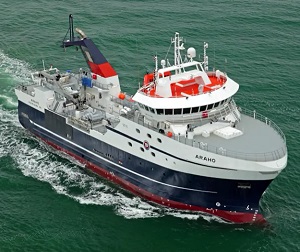
20 crew members on vessel in Dutch Harbor test positive for COVID-19 in latest seafood industry outbreak
A factory trawler joined a growing list of seafood processors and vessels in Alaska’s Aleutian Islands that have experienced COVID-19 outbreaks recently. Twenty members of the 40-member crew on the factory trawler Araho, owned by the O’Hara Corp., tested positive for the virus, the City of Unalaska said Friday. Upon arrival in Unalaska from Seattle on Wednesday night, a couple of crew members reported symptoms of COVID-19, according to Unalaska city manager Erin Reinders, who said testing began when the vessel arrived. >click to read< 19:46
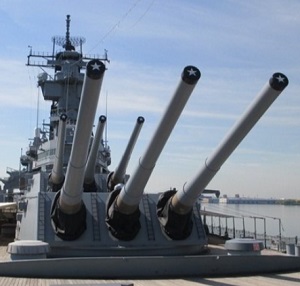
Seafood industry seeks protection from Russian military exercises in U.S. waters
U.S. Coast Guard capability to safeguard national interests and promote economic security in the Arctic will be the subject of a congressional hearing on Dec. 8, one in which Alaska’s commercial fishing entities have a special concern. “From our vantage point, on the front lines of a changing Arctic, a robust U.S. military presence to protect U.S. interests in the region is simply non-negotiable,” said Stephanie Madsen, executive director of At-Sea Processors. The trade association, based in Seattle, represents six member companies who own and operate 15 U.S. flag catcher/processor vessels who harvest Alaska Pollock in the Bering Sea and Aleutian Islands and Pacific whiting in Pacific Northwest coastal waters. >click to read< 08:26
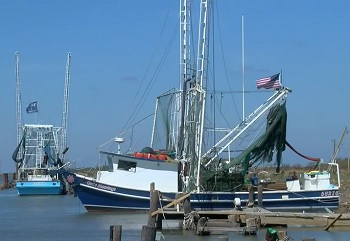
Hurricane Laura dealt a serious blow to the seafood industry in Cameron Parish
On a typical day in Cameron, you might see boats returning to shore with a catch of shrimp or fish. But Hurricane Laura has taken a severe toll on those who depend on seafood for their livelihood. Cameron Port Director Clair Marceaux says some have lost their boats. “Our fisheries folks have taken a really hard blow,” she said. “About a third of our fleet, estimated, has vessels that have sunk, so we’re working to get those out of the water. At safe harbor, they sunk, so it wasn’t as if they were left here and sank.” Plus she says some are also dealing with losing their homes. video, >click to read< 13:22
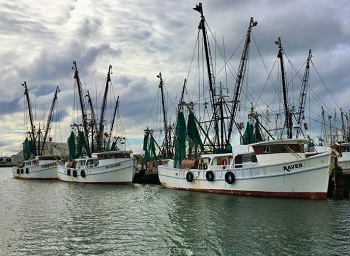
Florida fisheries wait for federal aid as prices take a deep dive – fisheries across the nation have experienced steep sales decline
Federal officials Wednesday defended the delay in releasing $300 million on fisheries assistance funding, including $23.4 million for Florida, saying the pandemic has set them behind in analyzing data to determine how much each fishery is due. Senators on the Commerce, Science, & Transportation Committee urged faster action to offset the impacts of COVID-19 on the seafood industry. Committee Chairman Sen. Roger Wicker, R-Miss., noted that fisheries across the nation have experienced up to a 90 percent decline in sales.,, In May, the CARES Act allocated $300 million for fisheries assistance funding. Florida received $23,447,815, according to the Atlantic States Marine Fisheries Commission. However, the National Oceanic and Atmospheric Administration has not approved the state’s plan. >click to read< 13:03






